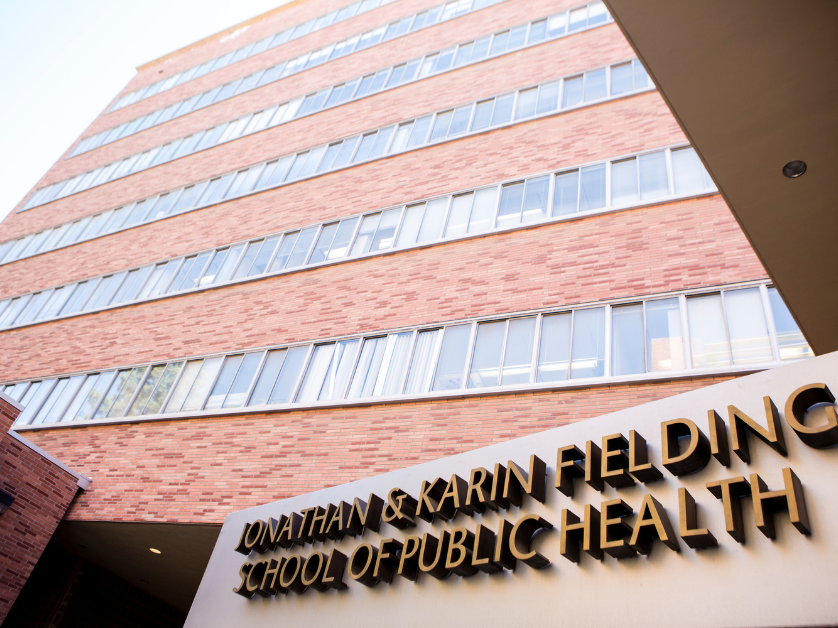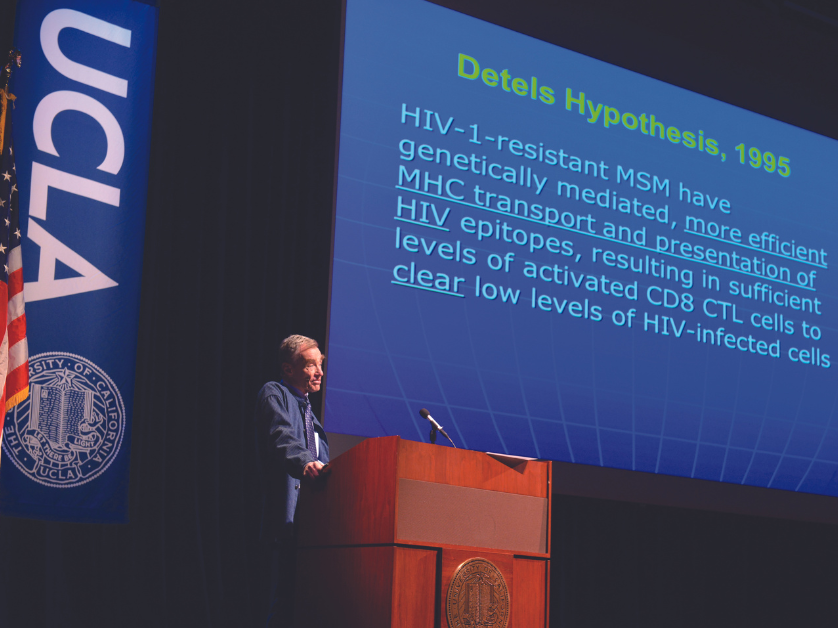Department of
Environmental Health Sciences

Never before have environmental concerns loomed larger. Within the UCLA Fielding School of Public Health’s Department of Environmental Health Sciences (EHS), world-renowned scholars continue to develop knowledge on the links between the environment and health, as well as educating scientists, public health leaders, and policymakers to inform strategies for preventing harmful exposures while promoting healthier ambient, built, and occupational environments.
Globally, each year more than 12 million people die because they live or work in unhealthy environments. Harmful pollutants can contribute to certain diseases, including cancers. These burdens are not shared equally across the population: In low-income neighborhoods and low-wage industries within the U.S., and in low-income countries around the world, people are more likely to experience unhealthy and unsafe environments. Children and pregnant women are most vulnerable to the health effects of environmental toxins. Climate change, which has already had profound health effects through more frequent heat waves; more intense natural disasters such as wildfires and hurricanes; and disruptions in physical, biological, and ecological systems, disproportionately harms low-income communities. It has become clear within the EHS field that the condition of the environment that individuals or communities experience is the product not just of natural processes, but also of decisions society has made through laws, regulations, and norms.
At the UCLA Fielding School, EHS faculty, students, and research staff conduct exposure assessments of chemicals, physical agents, biological agents (including the virus that causes COVID-19), and psychosocial factors, then connect data from personal and community exposures with the implications for population health. These exposures can involve ambient environments, such as neighborhoods and cities, or occupational exposures at workplaces. Through research delineating where and how people are exposed to harmful pollutants and the health impact of varying degrees of exposure, EHS experts at UCLA Fielding provide the basis for laws and policies that can prevent serious health problems and deaths. Faculty expertise covers the gamut of environmental health domains — including air and water quality, toxic exposures and hazardous sites, occupational safety and health, sustainability, the built environment, and climate change. A common thread through much of this work is the issue of environmental justice and equity.
In many ways, FSPH is ideally situated for research, teaching, and community engagement on the broad spectrum of environmental health issues — located in an arid region with formidable air and water concerns, exacerbated by climate change; in a state with vital exposure issues associated with agriculture and the diverse industrial portfolio; and where there is a growing specter of wildfires and heat waves, along with the challenges attendant to the state’s coastal geography. In pursuing these rich and potentially fruitful areas of study, EHS faculty benefit from collaborations with experts in fields such as urban planning, law, civil and environmental engineering, and other disciplines across the UCLA campus. Moreover, Los Angeles is a highly diverse region, with a long record of leadership and grassroots organizing for environmental justice. California has consistently led the nation in adopting aggressive strategies to tackle air, water, and climate challenges. Many of these forward-thinking policies owe a considerable debt to the UCLA Fielding School’s environmental health faculty and students who have partnered with communities and policymakers, as well as alums who have served in key policy-setting positions, or as leaders of grassroots environmental organizations.



